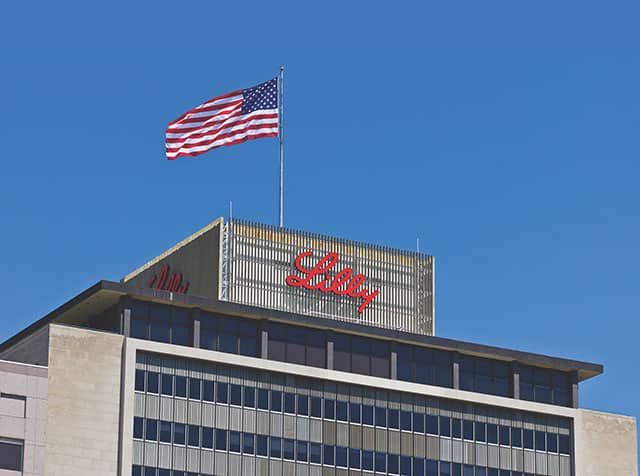
Eli Lilly has entered a research collaboration agreement with Dutch biotech Merus to develop CD3-engaging bispecific antibodies for the treatment of cancer.
Loxo Oncology, which Lilly acquired in 2019, will lend its drug design expertise as part of the agreement, while Merus will leverage its Biclonics platform to research and develop up to three CD3-engaging T-cell re-directing bispecific antibody therapies.
As part of the agreement, Merus will have responsibility for discovery and early-stage research activities, while Loxo will lead additional research, development and commercialisation activities.
Merus is set to receive an upfront cash payment of $40m plus an equity investment by Lilly of $20m in the company’s common shares.
On top of that, Merus could receive up to a further $540m in potential development and commercialisation milestones per products, for a total of up to around $1.6bn for three products.
“CD3-engaging bispecific antibodies are rapidly becoming one of the most transformative immune-modulating modalities used to treat cancer. We expect these therapies will become an important component of the Loxo Oncology at Lilly biologics strategy,” said Jacob Van Naarden, chief operating officer of Loxo Oncology at Lilly.
“Merus has built a differentiated platform, one that we believe can enable us to create bispecific antibody therapies with wider therapeutic indexes than those available today. We look forward to working closely with Merus to develop new potential medicines for patients with cancer,” he added.
In July 2020, Merus received an orphan drug designation from the US Food and Drug Administration (FDA) for its first-in-class bispecific antibody zenocutuzumab for the treatment of pancreatic cancer.
Zenocutuzumab is designed to bind to the HER2 and HER3 receptors with the aim of blocking the interaction of HER3 with its ligand neuregulin 1 (NRG1).
When the NRG1 gene fusion protein is present in a tumour, it increases growth by binding to HER3 receptors on the cell surface, which then recruit HER2. When both HER2 and HER3 receptors combine, this activates a signalling pathway that is crucial for cancer survival and causes cancer proliferation.
The bispecific antibody operates in two ways – first, it docks the drug to HER2, which impairs the ability of both receptors to cooperate. Then it binds to HER3 at the NRG1 binding site, which in turn prevents these fusions from activating HER3.
In early clinical trials, zenocutuzumab demonstrated promising responses in patients with previously treated pancreatic cancer with NRG1 gene fusions.




